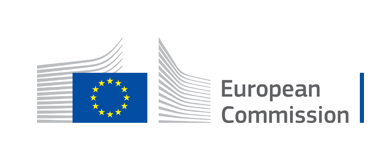|
|

|

|
|
|
07 November 2019
|
|

|
|
|
Economic and Financial Affairs
ECFIN E-news 206
|
|
|
|
|
|
|
follow us :
|


|
|
|
|
|
|
|
|
|
Top story
|

|
|
Autumn 2019 Economic Forecast: A challenging road ahead
|
|
The European economy is now in its seventh consecutive year of growth and is forecast to continue expanding in 2020 and 2021, according to the Autumn 2019 Economic Forecast released on 7 November.
|
|
|
|

|
|
Labour markets remain strong and unemployment continues to fall. However, the external environment has become much less supportive and uncertainty is running high. This is particularly affecting the manufacturing sector, which is also experiencing structural shifts. As a result, the European economy looks to be heading towards a protracted period of more subdued growth and muted inflation. Euro area gross domestic product (GDP) is now forecast to expand by 1.1% in 2019 and by 1.2% in 2020 and 2021. Compared to the Summer 2019 Economic Forecast (published in July), the growth forecast has been downgraded by 0.1 percentage point in 2019 (from 1.2%) and 0.2 percentage points in 2020 (from 1.4%). For the EU as a whole, GDP is forecast to rise by 1.4% in 2019, 2020 and 2021. The forecast for 2020 was also revised down compared to the summer (from 1.6%). Persisting trade tensions between the US and China and high levels of policy uncertainty, especially with respect to trade, have dampened investment, manufacturing and international trade. With global GDP growth set to remain weak, growth in Europe will depend on the strength of more domestically-oriented sectors. Domestic growth drivers alone are unlikely to be sufficient to power strong growth, however.
|
|
|
|

|
|
|
|
Viewpoint
|
|
|
|
Valdis Dombrovskis, Vice-President for the Euro and Social Dialogue, also in charge of Financial Stability, Financial Services and Capital Markets Union
|

|
|
“So far, the European economy has shown resilience amid a less supportive external environment: economic growth has continued, job creation has been robust, and domestic demand strong. However, we could be facing troubled waters ahead…I urge all EU countries with high levels of public debt to pursue prudent fiscal policies and put their debt levels on a downward path. On the other hand, those Member States that have fiscal space should use it now.”
|
|
|
|

|
|
|
|
More News
|

|
|
EU approves €150 million disbursement in Macro-Financial Assistance to Tunisia
|
|
The European Commission, on behalf of the EU, has approved the disbursement of a €150 million loan to Tunisia.
|
|
|

|
|
The disbursement approved on 29 October is the third and final disbursement under the second Macro-Financial Assistance (MFA) programme to Tunisia, and follows the completion of an important set of policy measures intended to support the country's economic transition. The reforms undertaken as part of this MFA reflect the efforts made by Tunisian authorities to implement a set of far-reaching reforms designed to fight corruption, build a more equitable tax system, increase the quality of public administration, and improve the country's social protection system. The programme has also supported reforms to enhance labour market policies and reduce unemployment, especially among youth, as well as to improve the business climate in Tunisia. The second MFA programme, worth €500 million, was adopted in July 2016 by the European Parliament and the Council. With this disbursement, the EU has now provided Tunisia with €800 million in MFA funds since 2015.
|
|
|
|

|
|
Commission receives more than 600 requests for support under the Structural Reform Support Programme for 2020
|
|
The European Commission has received 609 requests for support under the Structural Reform Support Programme (SRSP) for next year.
|
|
|

|
|
The requests come from 27 Member States, extend across a range of sectors, and have an estimated total cost of €243.5 million. Since the start of the programme in 2017, the demand for support by the SRSP has been increasing steadily – from 6 participating Member States then to 27 now. The SRSP offers expertise to all EU countries for the implementation of growth-enhancing reforms. It covers a wide range of areas – from reforms of public administration, to business environment, labour market, health, education, social services, revenue administration, public financial management and financial sector reform. The support is based on demand and is tailor-made for the beneficiary Member State. Since 2017, the programme has provided support for more than 550 projects in 26 Member States. In the coming weeks, the Commission will assess the newly-received requests for support and select new projects in early 2020.
|
|
|
|

|
|
Investment Plan: EU invests in advanced sensors and artificial intelligence, microfinance and bio-tech
|
|
The European Investment Bank (EIB) announced on 28 October that it has signed a financing agreement with Prophesee, a French company based in Paris, specializing in the design of revolutionary neuromorphic vision sensors and artificial intelligence algorithms.
|
|
|

|
|
The €20 million euro loan is backed by guarantees from the EU budget, under the Investment Plan for Europe - the Juncker Plan - and its European Fund for Strategic Investments (EFSI). Prophesee will use the EU financing to develop international markets and to complete the development of its 4th generation sensor to be launched on the Internet of Things and automotive markets in 2020 and 2021 respectively. On 24 October, the European Investment Fund (EIF), part of the EIB Group, concluded the first microfinance guarantee agreement in Bulgaria, under the European Commission's Programme for Employment and Social Innovation ("EaSI"). The financing of BGN 10 million (€5.1 million) is envisaged to support 320 micro-enterprises. The agreement was signed with JOBS MFI, the dedicated microfinance subsidiary of the Bulgarian Development Bank. The EIB announced on 23 October that it will loan €30 to Mabion, a Polish biotech company, to finance its growth plans for treating cancer and autoimmune diseases. The company is the first beneficiary under the European Growth Finance Facility in Poland, which is backed by the Juncker Plan.
|
|
|
|

|
|
Brexit: European Council adopts decision to extend the period under Article 50
|
|
The European Council has adopted a decision to extend the period under Article 50.3 (of the Treaty on the European Union), in the context of the United Kingdom's intention to withdraw from the EU.
|
|
|

|
|
The extension will last until 31 January 2020 to allow more time for the ratification of the withdrawal agreement. The withdrawal can take place earlier on 1 December 2019 or 1 January 2020, if the withdrawal agreement is ratified by both parties. For the duration of the extension the UK remains a Member State with all the rights and obligations set out in the treaties and under EU law. The decision was taken unanimously by the European Council by written procedure, with the agreement of the UK. This agreement was set out in a letter from UK Prime Minister Boris Johnson to President of the European Council Donald Tusk. The European Council also agreed on a declaration accompanying the decision.
|
|
|
|

|
|
October 2019: Economic Sentiment down in both the euro area and the EU
|
|
In October 2019, the Economic Sentiment Indicator (ESI) decreased in both the euro area (by 0.9 points to 100.8) and the EU (by 0.9 points to 99.0).
|
|
|

|
|
The deterioration of euro-area sentiment resulted from lower confidence in industry, services, retail trade and among consumers, while confidence improved markedly in construction. Amongst the largest euro-area economies, the ESI remained broadly unchanged in Germany (-0.2), France (-0.1), Italy (+0.1) and the Netherlands (+0.2), while it saw another significant decrease in Spain (-3.0). Behind the commensurate decline of the headline indicator for the EU (-0.9) is an offsetting of a sharp deterioration of sentiment in Poland (-1.9) by a strong improvement in the UK (+1.8). In line with the euro area, construction confidence improved markedly and consumer confidence deteriorated, while the deterioration of EU confidence in services and retail trade was much stronger than in the euro area. On the other hand, EU confidence in industry remained broadly stable. As regards financial services confidence, the drop in the EU aggregate was in line with euro-area developments.
|
|
|
|

|
|
|
|
Publications
|

|
|
2019 Fellowship Initiative Papers – “The productivity challenge jobs and incomes in the dawning era of intelligent robots”
|
|
DG ECFIN's Fellowship Initiative 2018-2019 “The Productivity Challenge: Jobs and Incomes in the Dawning Era of Intelligent Robots” has solicited contributions examining current and possible future productivity developments in Europe.
The 8 papers are written by external experts commissioned to write research papers, retaining complete academic independence, contributing to the discussion on economic policy and stimulating debate.
|
|
|

|
|
|
|

|
|
|
|
Selected Speeches
|
|
29/10/2019
|
|
Vice-President Dombrovskis’ speech at the presentation of the book "Safeguarding the Euro in Times of Crisis - The Inside Story of the European Stability Mechanism."
|
|
|
|
|

|
|
|
|
Agenda
|

|
|
Agenda
|

|
|
|
|

|
|
|

|
|












